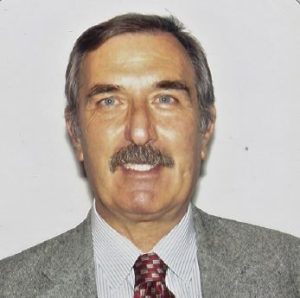“Exciting careers waiting for future hydraulic engineers”
Dr. Albert Molinas
President, Hydrau-Tech, Inc.
Wednesday, March 20, 2024
4:00pm in Engineering 120

Abstract:
A career in Hydraulic Engineering is challenging and can be exciting and fulfilling. As a hydraulic engineer working on this topic for almost 50 years, Dr. Molinas will show several examples of his projects involving laboratory analysis, numerical modeling, field work, and solving practical engineering problems. A common thread in these projects are the desire to learn more about hydraulic systems and help societies achieve safer, more enjoyable, healthier environments.
Among these examples to be presented are:
• 1-, 2-, 3-D modeling of hydraulic structures for a dam under construction in Puerto Rico.
• Physical modeling of hydraulic structures in laboratories.
• Solving scour problems at a water diversion dam on Poudre River.
• Sediment transport modeling on Colorado River.
• Use of various data collection techniques in the field to measure channel bathymetry.
• Emerging technics using virtual reality.
Bio:
Dr. Molinas has over forty years of experience in the fields of river mechanics, open channel hydraulics and sedimentation, and has been the principal engineer of numerous projects ranging from physical and numerical modeling of rivers, reservoirs, and watersheds to analytical studies of river behavior. Dr. Molinas has conducted the analysis, design, and laboratory testing of water resources projects including reservoirs and dams, spillways, stream-environment structures including levees, water supply and distribution systems, irrigation channels and control structures, hydro-electric facilities, and modeling of both water and sediment flows. He has been the principal investigator in numerous projects both at Colorado State University where he served as a professor since 1983, and at Hydrau-Tech, Inc., which he founded in 1986. Dr. Molinas’ projects ranged from laboratory and numerical modeling to analytical studies of river and reservoir behavior, from geographic information systems to stream-classification expert systems. The scale of the studies ranged from small-size laboratory flumes to very large river field studies on Mississippi, Yellow River, and Missouri.
For the past 40 years, Dr. Molinas has been involved in numerical sediment modeling studies for the National Cooperative Highway Research Program (NCHRP), Federal Highway Administration (FHWA), U.S. Bureau of Reclamation and the U.S. Geological Survey (USGS) and the World Bank. Through the NCHRP and the ensuing FHWA project, he developed the FHWA’s Bridge Stream Tube model for Alluvial River Simulation (BRI-STARS) which utilizes existing bridge scour equations and the stream tube approach to predict aggradation/degradation for highway encroachments. This study included extensive literature searches, identification of potential sources of bridge scour data, and comparison and analysis of various bridge scour equations as well as state-of-the-art modeling approaches for channel stability. Two of his models, STARS and GSTARS, which were developed for the Bureau of Reclamation were among the “Twelve Selected Alluvial System Models in The United States” by the Federal Energy Regulatory Commission. Dr. Molinas’ models have been and are currently in use by various government agencies such as the Bureau of Reclamation, USGS, FWA, and various state DOTs as well as private agencies and foreign governments (China, Taiwan, Korea, France, Switzerland, and Venezuela).
Dr. Molinas was the principal investigator of the FHWA study “Effects of Gradation and Cohesion on Scour.” This 7-year experimental study (1991–1998) was conducted through the Colorado State University Hydraulics laboratory and involved the use of large-scale modeling facilities.
Dr. Molinas authored/coauthored over 120 scientific journal articles and reports in his field of expertise.
Technical Expertise
- Dam and Reservoirs
- Hydrologic and Hydraulic Models
- Watershed Master Planning
- Bridge Scour Analysis
- Channel Restoration
- Drainage Design and Plans
Education
Ph.D. in Civil Engineering, Colorado University, Fort Collins, CO (1982)
M.S. in Mechanical Engineering, Colorado State University, Fort Collins, CO (1975)
B.S. in Mechanical Engineering, Bogazici University, Istanbul, Turkey (1974)